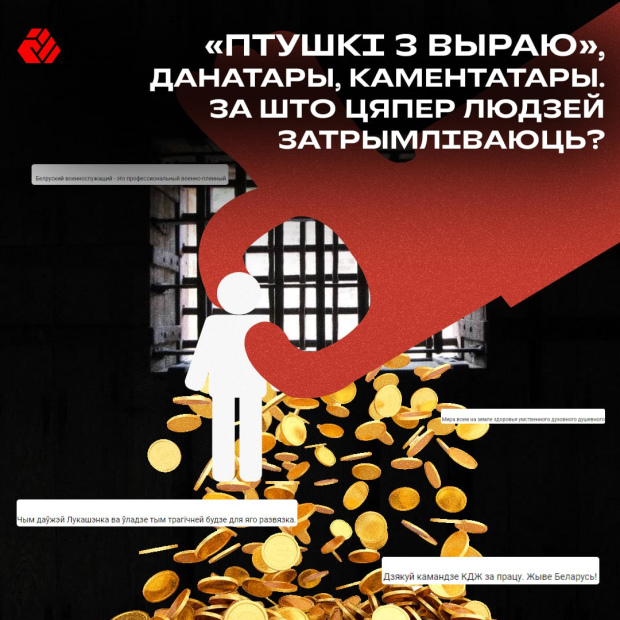Only 1% of those currently in prison have been pardoned. The repressive machine continues to devour more and more victims. Who is the regime targeting now? Who is being detained on political charges?
In July and August, several dozen political prisoners convicted by the Lukashenko regime were released. The names and total number of those released are still unknown. At the same time, while releasing some people early, the regime incarcerates others. We present to you the second of three articles in which we try to understand what lies behind the pardon process and how it affects the conditions and number of political prisoners in Belarus.
Torture and Pressure. How the Pardon Process Works for Political Prisoners >>> https://by.stranafund.org/blog/news/zdzek-i-cisk-yak-prahodzic-praces-pamilavannia-palitviazniau
News of detentions may have decreased, but along with reports of sentences for already detained individuals, they still create an endless chronicle of repression. Imagine this: repression has been ongoing uninterrupted for 4 years.
Most detentions still occur for participation in protests—echoes from 2020. “From what we see, they are processing photos from 2020 and identifying people from the pictures,” says Volha Zazulinskaya, head of the "A Country to Live in" Foundation. Many photos were taken in 2020, and no one thought that these photos could be used as evidence for criminal charges. “Clean-ups are happening in the regions, and local communities are being scrutinized,” notes Zazulinskaya.
- July 17: In Minsk, a sales specialist from a local company was detained for participating in a protest in 2020.
- August 6: A Minsk resident was detained for participating in a post-election protest.
- On August 6, a young man and woman were detained for participating in post-election protests; the authorities entered through a second-floor balcony.
- August 23: Two more residents of Kobrin were detained for participating in protests.
- August 27: A local resident of Kobrin was detained for participating in protests .
- August 28: A Brest resident was detained for participating in a post-election protest. In a "confession video," the man says he was on the roadway of Masherov Avenue in Brest on August 10.
They also catch those who should have been detained long ago if they were in Belarus. The authorities are especially interested in people who return to Belarus from abroad, having “lived a few years in a normal country,” says Andrei Strizhak, head of the BYSOL Foundation. This is easy prey. People are unaware of the risks awaiting them in Belarus. “They come back to Belarus to change their passport, resolve other matters, and end up under arrest or in a criminal case,” notes Strizhak.
Some of these "transients" left Belarus long after the so-called crime was committed. They were simply not yet targeted by the repressive machine before leaving the country. This falsely reassures people as if not being detained before means they won’t be detained at all. But they will be!
-
July 9: Upon returning to Belarus, an administrator of the "Belarusians in Portugal" and "Belarusians in Madeira" chats was detained; the man had been living in Portugal since 2019.
-
July 17: An IT specialist (business analyst) was detained after returning from Poland and will be tried for participating in protests. The girl moved to Poland, likely after the war began. She faces up to three years in a colony.
-
July 22: The owner of the “Tutaka” café in Lida was detained. A Grodno resident was detained after returning to Belarus [Link]. On July 22, a resident of Grodno was detained after returning to Belarus. The man had worked as a solar panel installer in the Netherlands and returned to Belarus. Allegedly, he registered in the "Plan 'Victory'" chatbot and wrote comments to police officers and their families.
-
August 6: At the Belarusian-Latvian border, a Belarusian returning from Latvia to Belarus was detained. Allegedly, the man was an administrator of several Telegram channels and participated in post-election protests [L.
-
August 22: A Brest resident was detained at the border upon returning from Poland for a relative's funeral due to donations to BYSOL. The woman moved to Poland with her husband in 2021 to study international relations. She managed to settle with a fine 250 times the amount of the donation and three days with bedbugs in a detention center.
People who have written something “inappropriate” online over the past four years—comments, expressions of their positions—are also being detained. The authorities have the targets and resources to find such comments, says Strizhak.
-
July 9: A resident of Zhabinka was detained for a tattoo reading “A.C.A.B.” On the open page of the man’s Instagram, there was a story expressing gratitude for the tattoo (“A.C.A.B” means “All Cops Are Bastards”) [Note].
-
August 20: Eight security officers were needed to detain a Minsk resident for wearing a cap with the inscription “A.C.A.B.”.
-
August 20: After a conversation with provocateur Yuri Komar in a chat roulette, a Gomel resident was detained. The man said that there is “little good” in Belarus now and that he participated in protests in 2020.
-
August 21: An engineer from OAO “Beltem” was detained for allegedly writing offensive comments about police officers.
-
August 29: A man was detained for negative comments about Belarusian and Russian authorities.
Sometimes, the regime targets the relatives of political prisoners for various fabricated reasons, says Marina Kosinerova, co-founder of the Dissidentby initiative.
-
July 19: In Volkovysk, the mother of political prisoner Alexander Frankevich and her sister were detained. The women had come to the colony with a package for Frankevich.
-
July 22: Security forces detained the sister of political prisoner Lev Vinogradov and her husband for expressing support for him.
-
July 25: In Minsk, a 19-year-old daughter of a political prisoner was detained for joining the campaign for her mother’s release and speaking about it publicly.
At the beginning of 2024, there were reports of mass detentions of donors. Raids were conducted across the country and caused a major uproar. However, even now, when there are no mass actions, detentions of those who donated to democratic movements or human rights organizations continue.
Along with donations, the authorities try to find evidence of protest activities, says Andrei Strizhak, head of the BYSOL Foundation.
Belarusians who donated to funds are being detained or summoned for questioning at the KGB, GUBOPiK, or DFR, writes "Vyasna". Some are offered a "bribe": to make a so-called voluntary donation several times greater than the original amount. Usually, the funds are suggested to be transferred to a special medical institution account. After that, the investigator may issue a ruling to terminate the criminal case. Given the chaos in Belarus, one cannot rule out the possibility of the criminal case being reopened.
"Thus, any visit to these institutions carries the risk of having to pay not only the bribe but also potentially facing a long prison term," notes Andrei Strizhak.
-
August 27: A man was detained for donations to the "Kalinoŭski Regiment" and BYSOL. In a so-called confession video, the man says he donated ten times via PayPal.
In February 2024, the Investigative Committee reported that Belarusians made "voluntary donations" totaling more than 37 million rubles (about 11.5 million dollars). The Investigative Committee called this a "mechanism for freeing individuals from criminal liability for financing extremist activities, provided they came forward with repentance and compensated for the damage."
Some donors are immediately detained as part of a criminal case for "financing extremist activities" (Art. 361-2 of the Criminal Code). Donations to organizations deemed "extremist formations" in Belarus can result in up to five years in prison, even if they were not recognized as such at the time of donation.
Belarus is also actively prosecuting under Art. 290-1 of the Criminal Code "financing of terrorist activities"—for donations to various initiatives, such as BYPOL and "Cyber Partisans". This article carries a penalty of up to 12 years in prison.
What to Do If I Donated to Solidarity Funds?>>>
Even without nationwide raids, detentions continue non-stop. The pardon process, the so-called "act of humanity," proceeds alongside the detention and imprisonment of ever more new victims of the regime.
But the continuation of detentions is not the only sign that repression has not stopped or even weakened. Here are brief confirmations of the persistently high level of political repression:
-
Politically motivated sentences are issued almost daily. In July, "Vyasna" received information about at least 221 cases of politically motivated repression stemming from criminal and administrative prosecution. Of these, at least 30 administrative cases were heard by the courts. Results of politically motivated criminal prosecutions are yet to be calculated.
-
Political prisoners are facing harsher punishments. Coordinator of "European Belarus" Yevgeny Afnagel (for the second time) and surgeon Andrei Lyubetsky have been transferred to prison regime. Bystander resident Yevgeny Klado was hit with new charges that could lead to up to 12 years in prison.
-
To avoid releasing political prisoners who complete their sentences, the regime uses Art. 411 of the Criminal Code. Sergei Yafimov, Eduard Babariko, and Sergei Detsuk had their prison terms extended under this article, allegedly for flagrant disobedience to the administration of the correctional institution. Similar charges have been filed against Vyacheslav Maleychuk and Yuri Zenkovich. This violates the right not to be tried twice for the same offense.
-
The authorities continue to add names to lists of individuals and organizations associated with extremist and terrorist activities, and extremist materials. For example, on July 16, the KGB recognized a medical community from Grodno as an extremist formation.
-
Torture and ill-treatment during detention and in places of imprisonment remain systemic and widespread practices.
-
Prisoners are still deprived of adequate medical care. In July, reports emerged about the deteriorating health of anarchist political prisoner Igor Olinevich, whom the colony administration regularly sends to solitary confinement. Polina Sharenda-Panasyuk has been diagnosed with chronic pancreatitis, which poses a serious threat to her life in Belarusian prison conditions. There is also information that priest Andrei Yukhnevich is in a weakened state in the detention center.
-
Leaders of the Belarusian protest have been held incommunicado for over a year. Through torture by isolation from the outside world and within the colonies, Sergei Tikhanovsky, Maria Kolesnikova, Viktor Babariko, and Nikolai Statkevich continue to endure such conditions, with new individuals being added to this list.


 Continue
Continue
